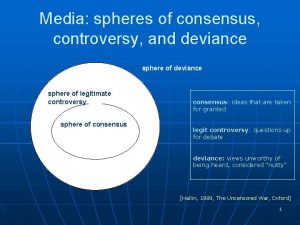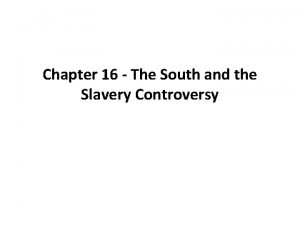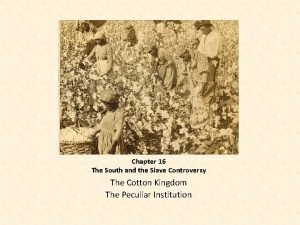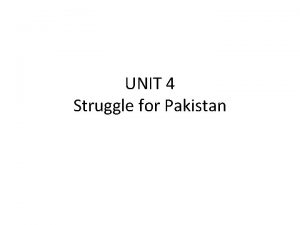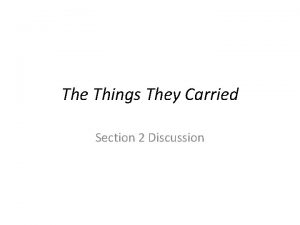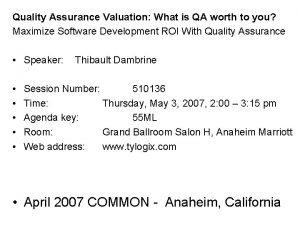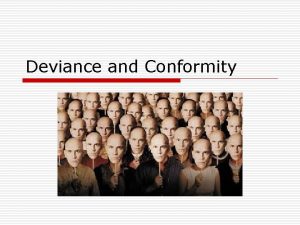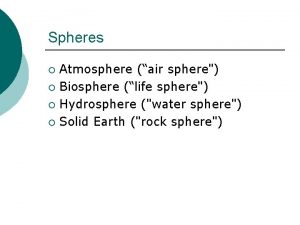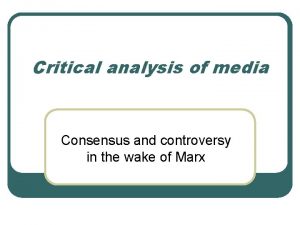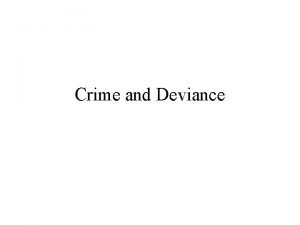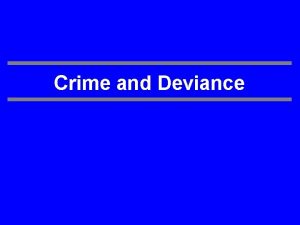Media spheres of consensus controversy and deviance sphere














- Slides: 14

Media: spheres of consensus, controversy, and deviance sphere of legitimate controversy sphere of consensus: ideas that are taken for granted legit controversy: questions up for debate deviance: views unworthy of being heard, considered “nutty” [Hallin, 1989, The Uncensored War, Oxford] 1

Even with GL, distinct national media continue to exist Each has its own set of boundaries separating spheres of consensus, legitimate controversy, and deviance - location of boundaries, content within boundaries, varies across countries 2

“Media and Sovereignty: The Global Information Revolution and Its Challenge to State Power” Monroe E. Price, Ch. 36, pp. 306310 (Excerpted from Price, “New Role of the State, ” in Media and Sovereignty, MIT Press, 2002) 3

Key questions n How is the balance of power in media – among states, citizens, and TNCs – changing? • How does it differ among states/countries? n Shouldn’t states – or at least democratic gov’ts – play a role in shaping media content and access? • To preserve national identity and/or national security? • To protect local/national culture (language, customs, etc. ) from global homogenization? n What is “net neutrality” and why do many media activists and researchers insist it is essential for democracy? 4

Broadband Usage Growing Even as Gaps Persist 5

Every new technology provokes responses by those who feel threatened n n 500 years ago, it was print Radio, a century ago, was seen as threat to national sovereignty • Like the internet today Technologies that cross borders are especially threatening to states claiming national sovereignty – authority over their territory 6

“Technologies of freedom”? n Modern technologies can be technologies of freedom precisely b/c of their capacities to overwhelm boundaries – physical or legislative – and as result they become key to the spread of democracy 7

But states continue to exercise authority in the media n n Most emphasis is on technology's power to weaken national sovereignty, but we should not neglect how states use technology to promote "national interest, " however governments define it It’s inevitable and often desirable that states promote common culture (national language, history, arts) – national identity • also national security 8

A contradiction n At the same time the capacity of states (e. g. , to set and enforce laws) is called into question, citizens increasingly demand: • moral controls, regulation of indecency • protection of national culture from global homogenization • a sense of order, national security 9

Relationship b/w media & borders is always in transition and varies across states n n n In some states, technologies of freedom are breaking down old media monopolies Other states (e. g. , Malaysia, China, India) are designing new boundary technologies to allow continuing control over internal information space New technologies are being used to create diasporic boundaries: opportunities for the unification of physically dispersed populations – or at least for the maintenance of strong ties to the "homeland" • diaspora: the Greek origin of the term refers to "the dispersion of seeds. " Diaspora is the population of a country that has migrated abroad and keeps strong identity ties with the homeland 10

National media as a “market for loyalties” n National media is a "market for loyalties" in which large-scale competitors for power use the regulation of communications to organize "a cartel of imagery and identity among themselves" • cartel: an agreement among competing firms that agree to coordinate prices, marketing and production n "Gov’t is usually the mechanism that allows the cartel to operate and is often part of the cartel itself" (p. 308) 11

The market cultivates "national identity" or community n It's easiest to understand the functioning of such a market for loyalties in context of a single state "One can make the general and expansive claim that much domestic regulation is an effort, within a society, to maintain or adjust the distribution of power among those who are dominant, with due recognition for subsidiary groups. ” 12

New challenges to the “market” n "Management of the market yields the collection of ideas and narratives employed by a dominant group or coalition to maintain power" (p. 308) • for that reason alone, control over participation in the market has been, for many countries, a condition of political stability n This market has always existed but "What differs today is the range of participants, the scope of its boundaries, and the nature of the regulatory bodies capable of establishing and enforcing rules for participation and exclusion. " • It’s possible that an int’l cartel could, as a means of shaping a transnational market for loyalties, establish a set of rules on a global level 13

Net neutrality n network neutrality (also net neutrality, internet neutrality) is a principle proposed for user access networks participating in the internet that advocates no restrictions by internet service providers & gov’ts on content, sites, platforms, the kinds of equipment that may be attached, and the modes of communication allowed [Wikipedia, http: //en. wikipedia. org/wiki/Net_neutrality] 14
 Logistic regression residual deviance
Logistic regression residual deviance Sphere of consensus
Sphere of consensus Sphere of control
Sphere of control It is a real issue with genuine controversy and uncertainty
It is a real issue with genuine controversy and uncertainty And without controversy
And without controversy Chapter 16 the south and the slavery controversy
Chapter 16 the south and the slavery controversy Chapter 16 the south and the slavery controversy
Chapter 16 the south and the slavery controversy Nurture debate
Nurture debate The south and the slavery controversy
The south and the slavery controversy Urdu hindi controversy
Urdu hindi controversy Why did azar kill the puppy
Why did azar kill the puppy The king james only controversy
The king james only controversy Inkhorn controversy
Inkhorn controversy Ford pinto controversy
Ford pinto controversy The adventures of huckleberry finn controversy
The adventures of huckleberry finn controversy

